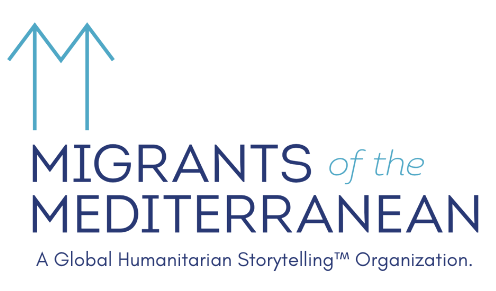Meet Alagie
Alagie on Lampedusa island. Lampedusa, Italy. 29 November 2016. ©Pamela Kerpius/Migrants of the Mediterranean
by
Pamela Kerpius
Recorded:
29 November 2016
Published:
December 2016
Meet Alagie.
25 years old and from Gambia.
To reach Lampedusa he crossed six countries: The Gambia, Senegal, Mali, Burkina Faso, Niger, and the most dangerous of all, Libya.
His trip took five months. He crossed the Sahara desert with five liters of water in the back of a pickup truck with 40 people. The truck left at 8:00am in a caravan through an established route from Agadez, Niger.
There were four checkpoints during travel, at which passengers must pay, or be beaten or jailed, or simply removed from the vehicle. The amount of dinars required at each checkpoint is often inflated, he says, so he hid money on his person to trick the traffickers. The desert journey took three days.
Alagie arrived in Sabha and stayed in a place, he says, “where all the Blacks slept.” He didn’t leave the compound, he was afraid to leave on account of “trying to secure my life.”
He stayed in hiding in Bani Waled (around 175 kilometers south of Tripoli) for three days. His trip to Tripoli was risky because there is the constant threat of being kidnapped by police. The traffickers took all of his belongings before he left: only the clothes he was wearing was he allowed to keep.
Alagie was stacked in a minivan that had very little air; he was afraid. He spent one month and two days in Tripoli before moving to the coast where he awaited the boat.
He slept in a crouched brick hut that in order to enter he had to crawl. There wasn’t much water, which arrived sometimes in 1-liter bottles. He ate rice mostly, unless there was a group lunch that everyone was able to chip in for.
He got sick there, but he did not seek help because he said he would be killed at the hospital or on the way to it.
On November 28, 2016 he crossed the Mediterranean Sea in a rubber dinghy with 130 people. There were about 10 women on board. It was midnight when they departed and he could see the moon and stars.
As morning arrived he was frightened because there was “nothing in sight, no island” or anything that gave him hope of rescue, and the water was now bad. “We were expecting our death.”
He was shaking cold. Water was leaking into the boat. They used their clothes to sop it up and wring it out into the sea.
They were rescued by the Guardia Costiera in the evening as a bad thunderstorm was rolling in; Alagie thanked the captains when he was picked up.
They arrived at the dock in Lampedusa on the evening of November 28 with lightning flashing across the whole sky. They barely outran the storm, and a few minutes after his bus pulled away from the dock to the hotspot it started to pour:
Image courtesy Mediterranean Hope
He is #122, which is his ticket provided by the Italian Ministry of the Interior. It is his passport, the way he is identified at the camp at the center of the island.
In 2006 he graduated from school and then attended a technical institute for further training. He has been a painter by trade and said he would like to work in the film industry.
Alagie is an amazing human being.



